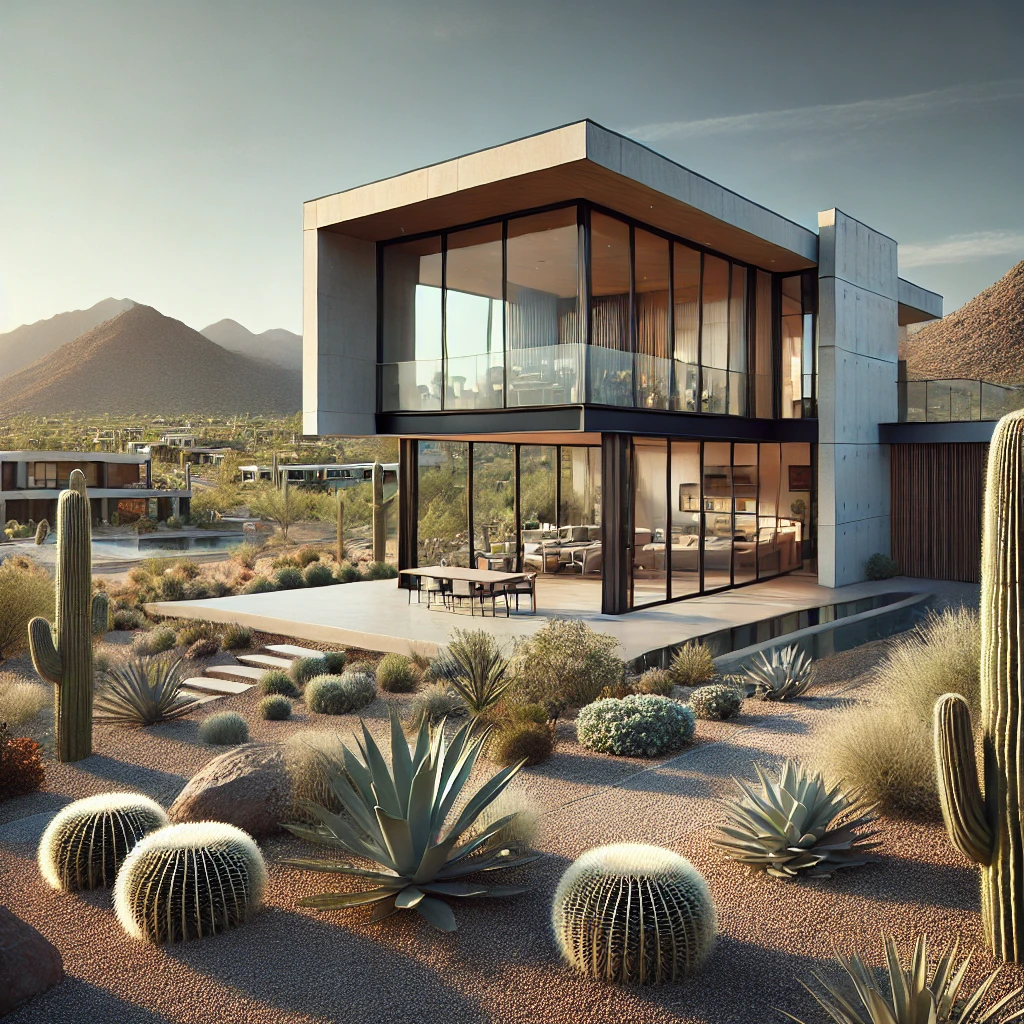Scottsdale, Arizona, known for its upscale living, stunning desert landscapes, and vibrant cultural scene, has become a prime location for residential real estate investors. The city’s combination of steady population growth, strong demand for luxury properties, and a thriving economy makes it an attractive market for those looking to invest in residential properties. This analysis provides insights into the current trends, opportunities, and potential risks for residential investors in Scottsdale.
Market Overview
- Population Growth and Demographics: Scottsdale has experienced consistent population growth over the past decade, driven by an influx of young professionals, retirees, and families. The city’s population is diverse, with a significant portion of high-income earners, making it a prime market for luxury residential properties. The median age in Scottsdale is around 47 years, indicating a mature population with substantial purchasing power.
- Economic Factors: The economy of Scottsdale is robust, with strong job growth in sectors such as technology, healthcare, tourism, and real estate. The city’s proximity to Phoenix, combined with its reputation as a hub for high-end living and leisure, has bolstered its economy. The unemployment rate in Scottsdale is lower than the national average, contributing to the city’s overall economic stability and making it an attractive destination for real estate investment.
- Housing Market Trends:
- Home Prices: Scottsdale’s housing market is characterized by high home prices, particularly in luxury neighborhoods. As of 2024, the median home price in Scottsdale is approximately $750,000, with prices in upscale areas like North Scottsdale often exceeding $1 million. The market has shown steady appreciation over the years, with home values increasing by an average of 6-8% annually.
- Rental Market: The rental market in Scottsdale is strong, with a high demand for both single-family homes and luxury apartments. The average rent for a single-family home is around $2,500 per month, with luxury properties commanding significantly higher rents. The city’s affluent population and the influx of seasonal residents contribute to a stable rental market.
- Inventory Levels: While demand remains strong, the inventory of available homes in Scottsdale is relatively low, contributing to upward pressure on prices. The low inventory, combined with the city’s desirability, makes Scottsdale a competitive market for buyers and investors.
Investment Opportunities
- Luxury Properties: Scottsdale’s reputation as a luxury destination makes it an ideal market for investors interested in high-end properties. Areas like North Scottsdale, Silverleaf, and DC Ranch offer exclusive neighborhoods with luxury homes that attract affluent buyers and renters. Investing in luxury properties can yield high returns through both appreciation and rental income.
- Short-Term Rentals: The popularity of short-term rentals, particularly in tourist-friendly areas, presents a lucrative opportunity for investors. Scottsdale’s year-round appeal to tourists, combined with its numerous events such as the Phoenix Open and Barrett-Jackson car auction, ensures a steady demand for short-term rentals. Investors can capitalize on this trend by purchasing properties in desirable locations and marketing them to vacationers and business travelers.
- Fix-and-Flip Opportunities: For investors looking for shorter-term investments, the fix-and-flip market in Scottsdale offers potential profits. Properties in need of renovation in established neighborhoods can be purchased at a discount, updated with modern amenities, and resold at a premium. The high demand for move-in-ready homes in Scottsdale can lead to quick sales and profitable margins.
Risks and Considerations
- High Entry Costs: The high cost of entry into Scottsdale’s real estate market can be a barrier for some investors. Luxury properties require significant capital, and even mid-range homes are priced well above the national average. Investors need to carefully assess their financial capacity and consider leveraging financing options to manage the high costs.
- Market Competition: Scottsdale is a competitive market with strong demand from both local and out-of-state buyers. Investors should be prepared for bidding wars and be ready to move quickly when desirable properties become available. Working with a knowledgeable local real estate agent can provide a competitive edge in this fast-paced market.
- Economic Sensitivity: While Scottsdale’s economy is strong, it is not immune to broader economic downturns. The city’s reliance on tourism and luxury spending makes it somewhat vulnerable to economic fluctuations. Investors should consider the potential impact of economic slowdowns on property values and rental demand.
Conclusion
Scottsdale, Arizona, offers a compelling opportunity for residential real estate investors. The city’s strong economy, high demand for luxury properties, and potential for appreciation make it an attractive market for those looking to invest in upscale residential real estate. However, the high cost of entry and competitive market require careful planning and strategic investment decisions.
For investors willing to navigate these challenges, Scottsdale presents a chance to achieve significant returns through long-term appreciation, rental income, and short-term investment opportunities. By staying informed about market trends, working with local experts, and being prepared for market fluctuations, investors can successfully tap into Scottsdale’s thriving real estate market.



